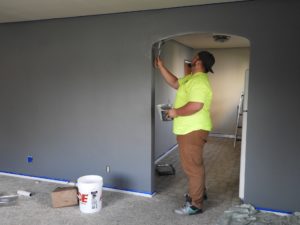
Reader Question: Did we make some costly homeowner mistakes? We are selling our home we bought 40 years ago. We finished the unfinished upstairs ourselves to save money after we bought it. We raised four children here. Now the real estate agents say because one of the bedrooms is accessed through another bedroom and lacks a closet, it is not a bedroom. We are concerned because they claim the value of the home is more with an additional bedroom. Is this a fact, or are they trying to keep the price down to sell it faster?
Monty’s Answer: The definition of what constitutes a bedroom varies from state to state, as the codes in each state and municipality are not universal. Some of the variables considered are the number and location of exits, ceiling height, window size, heating source, and square footage. While a closet is a very desirable feature in a bedroom, it is likely not a state requirement. That said, buyers in many areas of the country expect a closet in a bedroom. It is not unusual for real estate agents to disagree on the need for a closet to attain bedroom status. Keeping the price down an unlikely factor. If the room meets all other requirements in your state, is it possible for you to fasten an armoire in the bedroom while maintaining room for a bed and the ability to navigate comfortably?
You are not alone. Here are mistakes homeowners are known to make during their homeownership.
Ten costly homeowner mistakes
- Build additions that create undesirable floor plans. It is a good idea to run a floor plan by people who engage in home design such as space planners, architects, or a home draftsman employed by a building supply company.
- Build additions that detract from the architectural appearance of the exterior. Changing the elevation, exterior siding materials, or placement of the addition can create resistance upon future resale. If well thought out, an addition can also add value to a home.
- Remodeling and additions that do not match the existing standards of the home. It may not be cost effective to put Yugo (inexpensive Russian auto) parts in a Cadillac, and vice versa. Consistency in quality of the existing product will most often produce the best results.
- When preparing to sell, making improvements that will not reward the investment. Consider a home inspection before spending money. The condition of your home is the first consideration is preparing to sell. Without the home inspection, you may be unaware of issues that could be problematic when the buyer surfaces.
- Overlooking simple preventive maintenance items that can extend a components life or avoid more serious consequences. Inspecting the roof regularly, draining the water heater annually, reading and following product maintenance instructions can prevent unnecessary expense and add longer component life.
- Errors vetting and choosing contractors. Specify the deliverable in writing when describing the proposed work. Get references and inspect completed jobs. Compare materials not just by their initial costs, but also by their maintenance costs and how long they will last. For example, hardwood flooring may be more expensive, but it would have a longer lifespan than carpet. Here is a link to an article about vetting and hiring a contractor at https://dearmonty.com//tips-for-selecting-a-builder/.
- DIY projects on your most valuable asset. It is not always as easy as it appears on TV or in videos at retail stores. Unless you are in the trades, practice at your brother-in-law’s house before you tackle a bathroom remodel, or build new kitchen cupboards.
- Homeowners neglect to budget for future component failures. Consider the “life-cycle costs” of materials and appliances and start an amortized monthly savings fund, so you are prepared for a sizeable expenditure when the roof needs replacement.
- Do not take insurance for granted. There are different ways to insure your home regarding claims, deductibles, and what is covered and not covered. To discover lacking coverage and incur a huge cash outlay can be devastating.
- Property boundaries are critical. Walk the lot lines before you buy the house, identify the survey stakes and mark them so you can find them long into the future. It is not unusual for homeowners to build a beautiful fence on a neighbor’s property, or accidentally allow a neighbor to build on your property.
Before you make a significant improvement or repair consider consulting with a contractor. Doing research first when dealing with items on the list may payoff.


